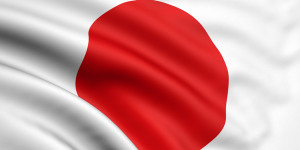USD/JPY has ticked higher on Wednesday, continuing the upward movement which marked the Tuesday session. Early in the North American session, the pair is trading at 102.80. On the release front, it’s another quiet day, with no major releases out of Japan or the US. Japanese Revised Industrial Production declined 0.4%, shy of the forecast of 0.0%. US Import Prices dropped 0.1%, its first decline in six months. Crude Oil Inventories will follow later on Wednesday. On Thursday, the US will release a host of key events, highlighted by retail sales and unemployment claims.
With the Bank of Japan holding a policy meeting on September 20 (just a day before the Federal Reserve meeting), the markets continue looking for clues as to the bank’s monetary plans. Will the BoJ hop off the sidelines and adopt further easing measures? If the bank does take action, deeper rate cuts or expanding the asset-purchase scheme (or some combination) are the most likely routes. On Wednesday, a report out of Japan said that BoJ plans to stick with negative rates, and could make further cuts at the September meeting. This could weigh on the yen, which has shown some recent weakness as its trades close to the 103 level. The bank has also said it will conduct a “comprehensive review” of its policy at the September meeting, and this event could result in some volatility from USD/JPY.
With a September rate hike unlikely but still on the table, the markets have been paying close attention to comments from FOMC members in connection with the Fed’s monetary policy. On Monday, FOMC member Lael Brainard sounded cautious, saying it would be prudent to maintain a loose monetary policy. Brainard noted global uncertainties and weak inflation as reasons for the Fed not to rush into raising rates. This dovish message was in marked contrast to remarks from FOMC member Eric Rosengren last week, who came out in support of a rate hike, without providing a timeline. Rosengren said that “tightening is likely to be appropriate”, and went as far as to say that the US economy could overheat if the Fed didn’t act soon. These mixed messages certainly haven’t clarified matters, leaving markets players in the dark as to the Fed’s monetary plans with a week to go before a crucial Fed policy meeting. The markets have had few fundamental cues to work with so far this week, but that will change on Thursday, as the US releases retail sales, PPI, the Philly Fed Manufacturing Index and unemployment claims. If these numbers are stronger than expected, speculation about a September hike will rise and the US dollar could gain ground.
USD/JPY Fundamentals
Wednesday (September 14)
- 00:43 Japanese Revised Industrial Production. Estimate 0.0%. Actual -0.4%
- 8:30 US Import Prices. Estimate -0.2%. Actual +0.1%
- 10:30 US Crude Oil Inventories. Estimate 2.8M
Upcoming Key Events
Thursday (September 15)
- 8:30 US Core Retail Sales. Estimate 0.3%
- 8:30 US PPI. Estimate 0.1%
- 8:30 US Philly Fed Manufacturing Index. Estimate 1.1
- 8:30 US Retail Sales. Estimate -0.1%
- 8:30 US Unemployment Claims. Estimate 262K
*All release times are EDT
*Key events are in bold
USD/JPY for Wednesday, September 14, 2016

USD/JPY September 14 at 8:25 EDT
Open: 102.50 High: 103.36 Low: 102.46 Close: 102.78
USD/JPY Technical
| S3 | S2 | S1 | R1 | R2 | R3 |
| 100.55 | 101.20 | 102.36 | 103.73 | 104.99 | 106.38 |
- USD/JPY posted moderate gains in the Asian session but has retracted in European trade
- 102.36 is a weak support level
- There is resistance at 103.73
- Current range: 102.36 to 103.73
Further levels in both directions:
- Below: 102.36, 101.20, 100.55, 99.71
- Above: 103.73, 104.99 and 106.38
OANDA’s Open Positions Ratio
USD/JPY ratio is unchanged on Wednesday, consistent with the lack of movement from USD/JPY. Currently, long positions have a substantial majority (65%), indicative of trader bias towards USD/JPY breaking out and moving higher.
This article is for general information purposes only. It is not investment advice or a solution to buy or sell securities. Opinions are the authors; not necessarily that of OANDA Corporation or any of its affiliates, subsidiaries, officers or directors. Leveraged trading is high risk and not suitable for all. You could lose all of your deposited funds.
